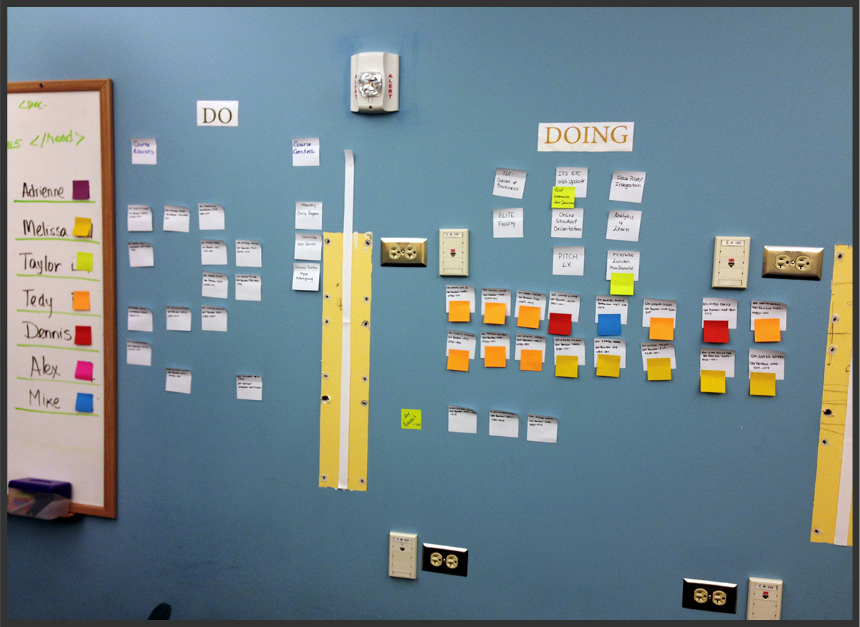Introduction
At MSU Denver, we’re excited about the future of education, but we also know that culturally disruptive change will be necessary to realize the future students truly deserve. The modern demand (and subsequent supply) for online and virtual instruction means that institutions have no choice but to rethink traditional systems for designing high-quality instruction/courses at scale. Is there a conceivable alternative which leads to anything but a reactionary, unsustainable train careening off its tracks? For instructional designers, faculty, and most egregiously, students, stagnation seems to almost inevitably represent a future of exponentially increasing frustration and stress. It’s this realization and prevailing expectation, both from students and institutional stakeholders, which forced us to explore a new approach to project management; one conceived with the intention of testing the limits of cultural change. The MSU Denver CoDeX acts as an inter-institution micro-market-economy, within which departments and faculty “purchase” applicable instructional design resources and/or services. By economizing the instructional design process, through monetizing available design time, we’ve created greater institutional equity, accountability, and consistency. Sounds crazy, but it’s already paying dividends, and preliminary data shows nothing but promising potential.
CoDeX in Action
So how does the CoDeX work? It’s fairly simple. Just think economics, but instead of dollars and cents, our localized micro-economy is based on the one common and immutable resource we all have an understanding of, and growing need for, time. The total design time available in a given cycle (typically a semester) represents the economic potential. This is established by managers prior to the upcoming cycle, creating a shared expectation and vision, and allowing senior instructional designers greater leverage and the ability to maintain accountability when allocating course development resources. After the market baseline is established, all of the services offered are assigned a fixed “cost,” and market “consumers” (faculty, chairs, deans, etc.) are given the opportunity to strategically “spend” their fair market share of Instructional Design Tokens (1 IDT = 1 hour). Our services fall into three distinct programs, helping to provide additional structure, but what ultimately gets purchased can be anything from a brief consultation or training to a full course redesign (consumers drive the CoDeX market). This new framework, along with the introduction of some key tools like Slack and a Kanban Board, has shifted expectations, simplified project management, and been the catalyst for a new spirit of innovation and creativity.

Kanban Board for CoDeX Project Tracking
Current & Future Benefits
The major benefits of the Course Design Xchange are the accountability, equitability, and scalability inherent to the system. It creates a broad understanding of available resources among all stakeholders, encourages strategic collaboration, and validates any need for added resources (personnel or otherwise). A secondary benefit is the potential for long-term adaptability. As data is gathered, market administrators (analysts?) have the ability to strategically influence the market and affect institutional direction with regards to education technology and course design. Lastly, in combination with AIDNet, this model is infinitely scalable. As demand grows, teams can be added; ultimately acting as stimulus packages and injecting more IDTs (i.e. available hours) into the system. While this approach may seem dehumanizing on the surface, it actually creates an environment in which we as humans are very familiar, reintroducing the time and sanity needed to bring humanity back to education technology.
Having just completed our first cycle under this new model, we still have plenty of data to gather and lessons to learn, but initial internal and external reactions are very promising. If you’re interested in learning more or exploring this idea further, contact MSU Denver Senior Instructional Designer, Taylor Kendal.
About Taylor Kendal


